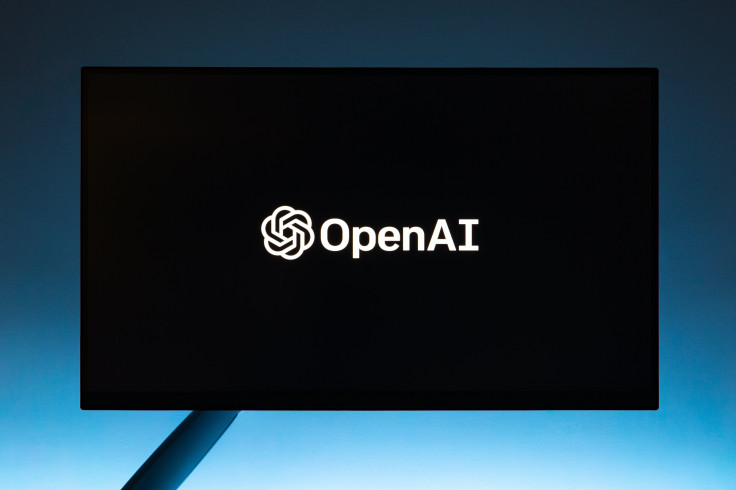OpenAI and UK Government Join Forces to Unlock AI Potential in Public Services

Leading artificial intelligence (AI) company, OpenAI, is partnering with the UK government to explore how AI can transform public services.
Sam Altman, the chief executive of OpenAI, has finalised an agreement with the British Government to deploy ChatGPT technology in key sectors, including justice, security, and education.
The deal positions OpenAI alongside Google in accessing Britain's public sector, potentially transforming how citizens interact with government services through advanced AI integration.
A Landmark Partnership
Altman, whose company is now valued at $300 billion (£222.45 billion) and is behind the widely used ChatGPT large language models, finalised a memorandum of understanding with Peter Kyle, the UK's Secretary of State for Science, Innovation, and Technology, on Monday.
This partnership represents Britain's growing commitment to the transformation of AI as this agreement follows a similar, extensive deal between the UK government and Google.
The arrangement with Google drew intense criticism from campaigners, who labelled it 'dangerously naive' as their concerns stemmed from the potential for the public sector to become overly reliant on private technology providers.
AI's Role in Transforming Public Services
The latest agreement of understanding between OpenAI and the Government outlines a commitment to 'collaborate to identify opportunities for how advanced AI models can be deployed throughout government,' including 'to help civil servants work more efficiently' and to support 'citizens to navigate public services more effectively.'
The agreement states that the two parties will work together to develop AI solutions for 'the UK's hardest problems, including in areas such as justice, defence and security, and education technology' and develop partnerships 'to expand public engagement with AI technology.'
Addressing Concerns and Building Trust
Altman hasn't shied away from stating his belief that Artificial General Intelligence (AGI)—AI systems capable of human-level intelligence across various tasks—could be achieved as early as this year. This bold prediction highlights the rapid pace of development in the AI field.
However, the British public holds mixed views on the potential benefits and drawbacks of the rapidly advancing technology.
An Ipsos survey revealed that 31% are primarily optimistic about the opportunities, yet also somewhat worried about the risks. Similarly, another 30% are mainly concerned about the risks, but still express some excitement about the possibilities.
Sam Altman (@sama) on the future of OpenAI, ChatGPT's origins, and building AI hardware at this week's AI Startup School in San Francisco. pic.twitter.com/7HO92DjG6Y
— Y Combinator (@ycombinator) June 21, 2025
'AI will be fundamental in driving the change we need to see across the country – whether that's in fixing the NHS, breaking down barriers to opportunity or driving economic growth,' Kyle said.
He emphasised that this 'can't be achieved without companies like OpenAI' and added that the partnership would give Britain 'agency over how this world-changing technology moves forward.'
The Future of AI in the UK
In a recent blog post, Altman pointed out, 'Britain has a strong legacy of scientific leadership and its Government was one of the first to recognise the potential of AI through its AI Opportunities Action Plan. Now, it's time to deliver on the plan's goals by turning ambition to action and delivering prosperity for all.'
OpenAI is set to expand its presence in the UK, surpassing its current team of over 100 staff members. The company's plans include growing its London office, which was its first international location, and further developing its research and engineering teams in the country.
The government and @OpenAI have signed a new strategic partnership.
— Department for Science, Innovation and Technology (@SciTechgovuk) July 21, 2025
This will improve collaboration in AI security research and explore investment in the UK’s AI infrastructure. pic.twitter.com/iZU2QrL06P
As part of the Google deal announced earlier this month, the Department for Science, Innovation and Technology stated that Google DeepMind—the tech company's AI division, led by Demis Hassabis, a Nobel Prize-winning scientist—would 'collaborate with technical experts in government to support them in deploying and diffusing new emerging technologies, driving efficiencies across the public sector, including accelerating scientific discovery.'
AI in Action: Current Government Applications
OpenAI has already contributed its technology to public services, notably by powering an AI chatbot. This tool is designed to help small businesses easily access advice and support from government webpages. Furthermore, OpenAI's technology also forms the basis for some of the tools within Humphrey, Whitehall's AI assistant, which aims to accelerate efficiency within the civil service.
© Copyright IBTimes 2025. All rights reserved.






















